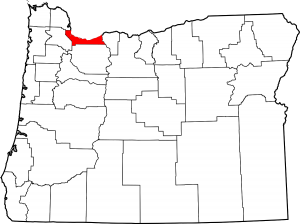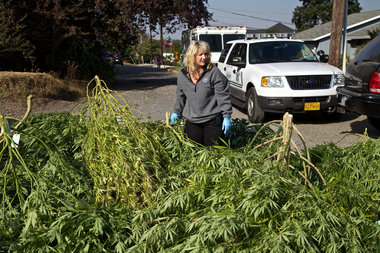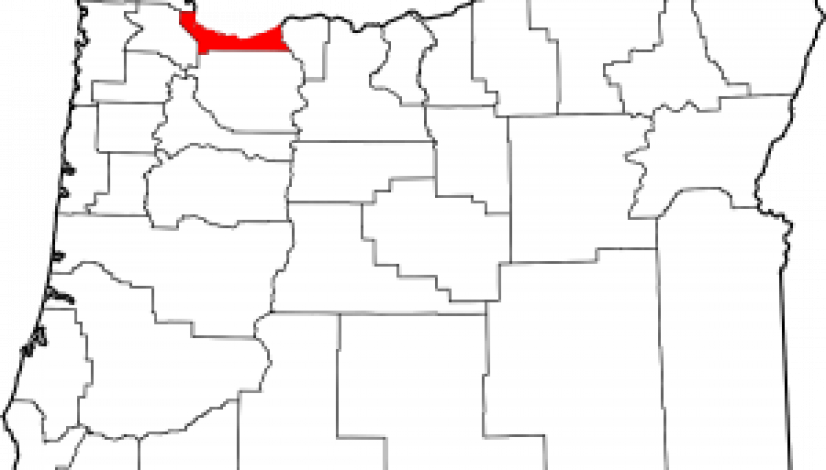The U.S. Turns Its Focus on the Illegal Marijuana Market in Oregon
The United States legal marijuana market is really all over the place. It is tough to make sense of it since each of the 9 adult-use states and 30 medical marijuana states have very different laws concerning the growing, distribution, possession and product availability of cannabis. Some states have relatively loose laws concerning marijuana, in particular in recreational marijuana states, while other states like Florida have very restrictive laws concerning medical marijuana. States are also at different stages of development depending on when they legalized cannabis, some starting in 2014 and others that have only recently implemented laws. The most relaxed laws concerning marijuana exist on the west coast though. Typically California would be the greatest concern for marijuana leaking into the illicit market but lately it is Oregon that has been catching headlines with its involvement with the illegal marijuana market.
Oregon was one of the original adult-use states and actually decriminalized marijuana possession in 1973. The commercial sale of adult-use marijuana began in October of 2015. But, it is the medical marijuana law voters approved in 1998 that has left the door wide open to a massive surplus of marijuana in Oregon. Medical marijuana patients could purchase as much as a pound and half of medical marijuana (24 ounces) and grow six fully mature marijuana plants. But, in mid-August the Oregon Liquor Control Commission was forced to lower the amount of medical marijuana a patient could purchase to just one ounce in response to the growing illicit market for marijuana in Oregon.
 Multnomah County, Oregon
Multnomah County, Oregon
Intense competition for Oregon’s marijuana industry has driven the price of cannabis way down. Despite the nationwide low costs for marijuana in Oregon, the state has been setting records for the amount of tax revenue it has been generating from cannabis sales. The fiscal year dating from July 2017 to July 2018 saw an increase of 66% in marijuana sales tax revenue, and July of this year was a record month with $8.57 million alone in marijuana taxes. What is the old saying, if it’s too good to be true? Certainly some Oregon prosecutors have seen a red flag in these numbers and done some digging around. It turns out that the small Multnomah County in Oregon was accounting for one-third of marijuana sales of 8 ounces or more, and the sales were isolated to two particular undisclosed retailers.
Oregon U.S. Attorney Billy Williams said in May that despite the revocation of the Cole Memo by U.S. Attorney General Jeff Sessions in January. he would not be pursuing state legal cannabis businesses but would begin a hard press on the illegal market. His investigations culminated last week after federal agents arrested 6 people, seized $2.8 million, 11,000 marijuana plants and a yacht. The arrested individuals were supposedly planning on exporting the cannabis to Virginia, Florida and Texas. Whether the source of their cannabis came from the two retailers in Multnomah County has not been verified.

U.S Attorney Williams had this to say in a release about the arrests, “These cases provide clear evidence of what I have repeatedly raised concerns over: Oregon’s marijuana industry is attracting organized criminal networks looking to capitalize on the state’s relaxed regulatory environment. Dismantling criminal organizations is a key focus of our marijuana enforcement strategy. We will continue to work with our federal, state, local and tribal partners to disrupt overproduction and the illegal export of marijuana out-of-state.”
It is obvious that one of the intended purposes of the legal marijuana industry is to rid the country of the illicit marijuana market. While many marijuana enthusiasts would prefer to have the most relaxed laws possible for marijuana, especially after over 80 years of prohibition, states need better statistics provided to them to determine how to structure laws so that the industry stays competitive. The low prices of marijuana and basic over saturation of the market may have led some Oregon cannabis companies to take some desperate measures.
Tags
Cole Memodrug bustJustice DepartmentMarijuana Newsmedical MarijuanaOregon Liquor Control Commissionoregon marijuanaover saturated marketU.S. Attorney Billy Williams


